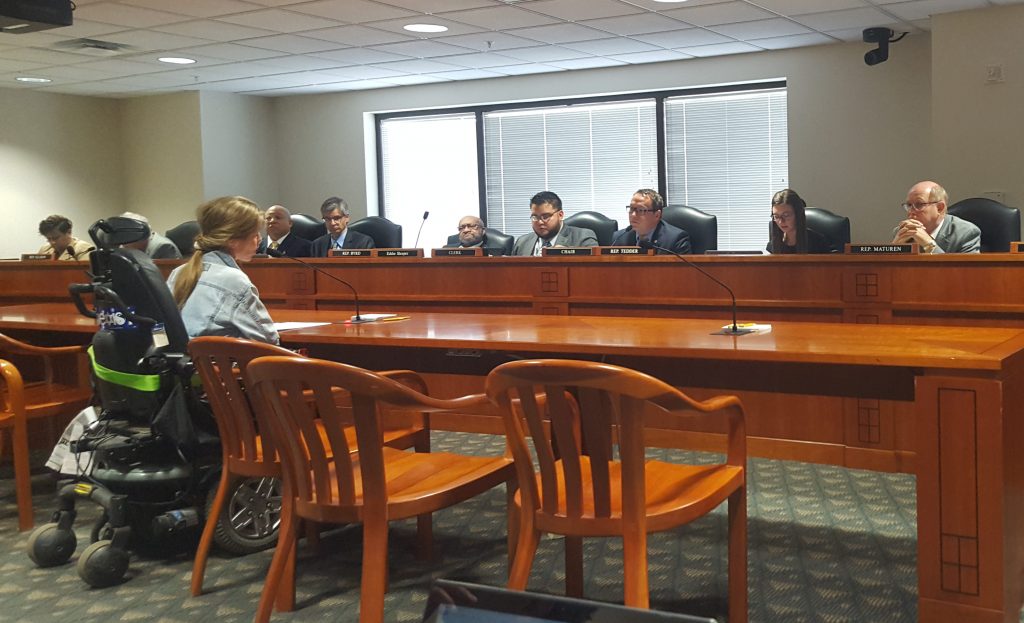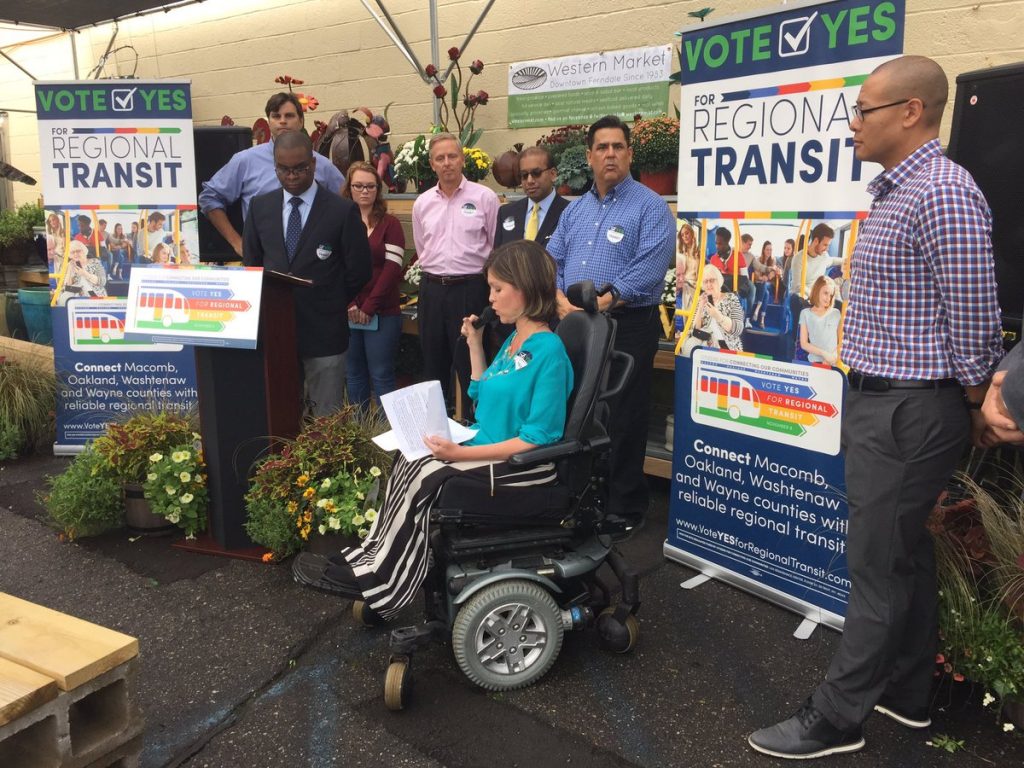
Because I have had a disability since birth that requires that I use a heavy-weight, impossible-to-break-down wheelchair that you can’t put into the trunk of a regular car, a lack of accessible and affordable transportation options has always been a major barrier to my independence and freedom. Not that I knew that when I was younger.
Growing up in Clarkston, which is one of the many cities in Oakland County that opted out of public transportation, I didn’t even know what I was missing out on. I was oblivious to the tremendous limitations the lack of public transportation in our region put on my social life, job opportunities, and even dating prospects. My extremely limited freedom just seemed like the unfortunate consequence of having a disability.
That all changed the first time I visited Chicago as an adult to visit an old friend from high school. Using the accessible transit of the Windy City, I was able to visit museums, restaurants, popular shopping destinations, and other local tourism attractions like Navy Pier, all without ever having to leave my wheelchair.
The freedom of movement and the independence I felt was mind blowing. The stark contrast to feeling so tied down and restricted back home caused an epiphany for me. I couldn’t fathom how I had gone so long without ever having given much thought to why we had so little access to public transportation back home.
While moving out of the state to a place with more robust transit sounded appealing, I landed my first major job back in good old Oakland County. That job – a recipient rights trainer for Oakland County’s Community Mental Health System – was what lit the fire for me to become an advocate for people with disabilities living in Southeastern Michigan. Although affordable, accessible housing options and home health care rights also ranked high in my advocacy efforts, improvements to public transportation remained one of my main areas of disability rights concerns.
This interest was cemented when I ended up getting the internship placement with Transportation Riders United while earning my Masters in Social Work at Wayne State University.
While at TRU, I learned how the lack of regional transit and the lack of investment in public transportation not only affected people with disabilities, but also seniors, people who can’t afford to drive, and even employers. I took it upon myself to research what impact a lack of transportation options has on people with all different types of disabilities throughout the region, in all four of the metro Detroit counties – Wayne, Washtenaw, Oakland, and Macomb. What I found, in short, is that across the board people with disabilities felt that it had a negative impact on their quality of life, affected their employability, and caused social isolation and even depression.

After I graduated and my internship with TRU came to an end, I couldn’t help but want to stay involved with the organization. As you can imagine, getting elected to serve on TRU’s board in February of 2019 was a tremendous honor.
Like me, all the board members of TRU are passionate about bringing the vision of safe, affordable, effective transit to life. Though we all come from different backgrounds and our personal reasons for caring about transit vary, we understand that better transit means a better life, a better community, a better economy, and a better region for all.

